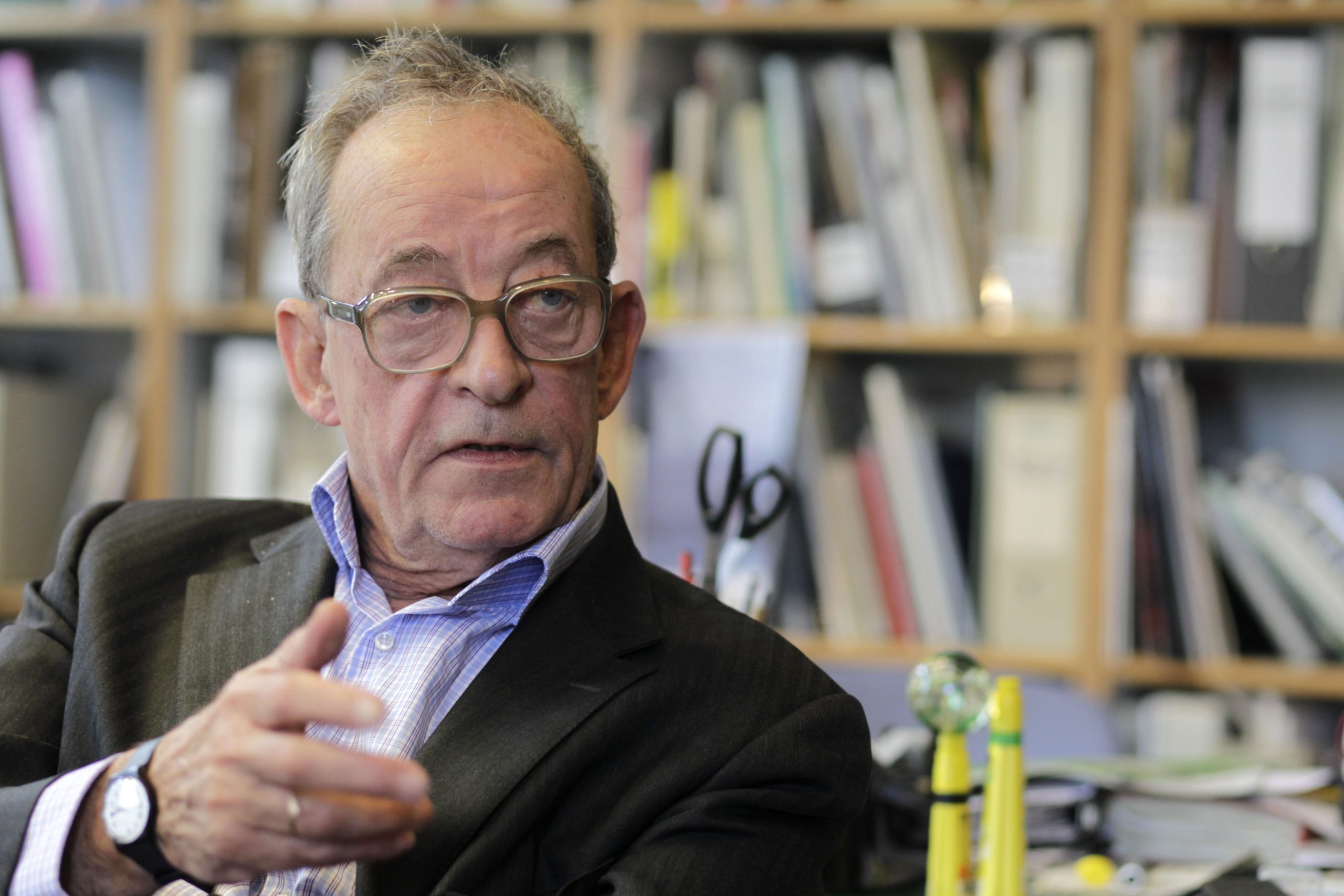
The respected German curator Kasper König, who steered and founded prominent art platforms and exhibitions in Germany, has died in Berlin. He was 80 years old.
The curator and former art professor is survived by his wife, artist Heidi Specker. He is also survived by two daughters and two sons from previous marriages. His son Leo König is a New York-based art dealer, and Johann König is a dealer with galleries in Berlin, Seoul, Munich, and Mexico.
König’s career was marked by numerous high-profile roles. Born in Mettigen, Germany, in 1943, König co-founded Skulptur Projekte Münster in 1977, a world-renowned outdoor exhibition that takes place across public sites in the German town of Münster every 10 years. He served as director of the Museum Ludwig in Cologne, Germany, between 2000 and 2012. He also curated the Austrian pavilion in Venice in 2003 and the controversial Manifesta 10 in St Petersburg in 2014.
“He has shaped the art discourse of the last five decades like no other,” said a statement from the Ludwig Museum. He joined the esteemed institution as it was losing some reputational ground to the rapidly exploding art scene in post-wall Berlin, which was then emerging as the country’s international art hub of note, a title long-held by Cologne. In his preamble to directorship at the time, he noted a “will to once again make the Museum Ludwig a place of art of international standing.” He curated around 140 exhibitions during his tenure.
He left a lasting legacy at the Rhineland institution. Much later, in 2023, he donated 50 artworks from his collection to museum, including works by Isa Genzken, Dan Graham, Thomas Hirschhorn, Jenny Holzer, Richard Long, and Jeremy Deller. “Kasper König was one of the greats of the art world. With his knowledge, his judgment, and his incorruptibility, he raised the Museum Ludwig to a world-class level again. I owe him a great deal,” noted current director Yilmaz Dziewior in a statement.
König got his start as an intern at Galerie Rudolf Zwirner in Cologne (Rudolf Zwirner is David Zwirner’s father and a founder of the art fair Art Cologne). He worked at London’s commercial gallery Robert Fraser in the 1960s and attended (but did not graduate) from the Courtauld Institute. He also lived in New York.
During the early stages of his career, the bustling Rhineland scene included artistic titans like Joseph Beuys, Sigmar Polke, and Gerhard Richter, all of whom König came to know. The first exhibition he curated was of the work of Claes Oldenburg in Stockholm. In 1968, he and his brother Walther König co-founded an art publishing house that Walther expanded into Walter König Books, which now has branches at the Ludwig Museum, the Stedelijk Museum in Amsterdam, and the Haus der Kunst in Munich, among others.
Together with art historian Klaus Bussman, König founded Skulptur Projekte Münster in 1977, inviting artists to interact with the city’s public by creating site-specific sculptures. His social circle from his early years curating European exhibitions included Hanne Darboven, Dan Graham, On Kawara, Sol LeWitt, Bruce Nauman, and Andy Warhol.
Later on, he taught at the Düsseldorf Art Academy in the 1980s and became a professor at the Städel art school in Frankfurt in 1988, which he led as rector from 1989. In 1987, he founded the Portikus institution in Frankfurt, a uniquely designed space that sits on an island on the Rhine near the school. It is dedicated to exhibiting young and emerging contemporary artists, often with some affiliation to the school.
In 2003, König curated the Austrian pavilion for the Venice Biennale. Among the dozens of solo exhibitions he curated were shows devoted to Donald Judd, A.R. Penck, Kawara, Richter, Gregor Schneider, Isa Genzken, and Wolfgang Tillmans. In 2014, he curated the controversial Manifesta 10 exhibition in St Petersburg and in 2017 took over the artistic direction of Skulptur Projekte Münster. In 2009, the Solomon R. Guggenheim Museum honored König’s career with a lifetime achievement award.
The curator also amassed an art collection over the years that includes works by artists Nicole Eisenmann, Maria Lassnig, and others. Earlier this summer, he announced that he would be selling his collection via the Cologne-based auction house Van Ham in October. The house will offer 400 works from his collection.
“Hardly anyone has shaped contemporary art as a curator as much as he has, both in Germany and internationally,” said Hermann Parzinger, president of the Prussian Cultural Heritage Foundation. “Kasper König will be difficult to replace. We will miss him and will always remember his achievements.”